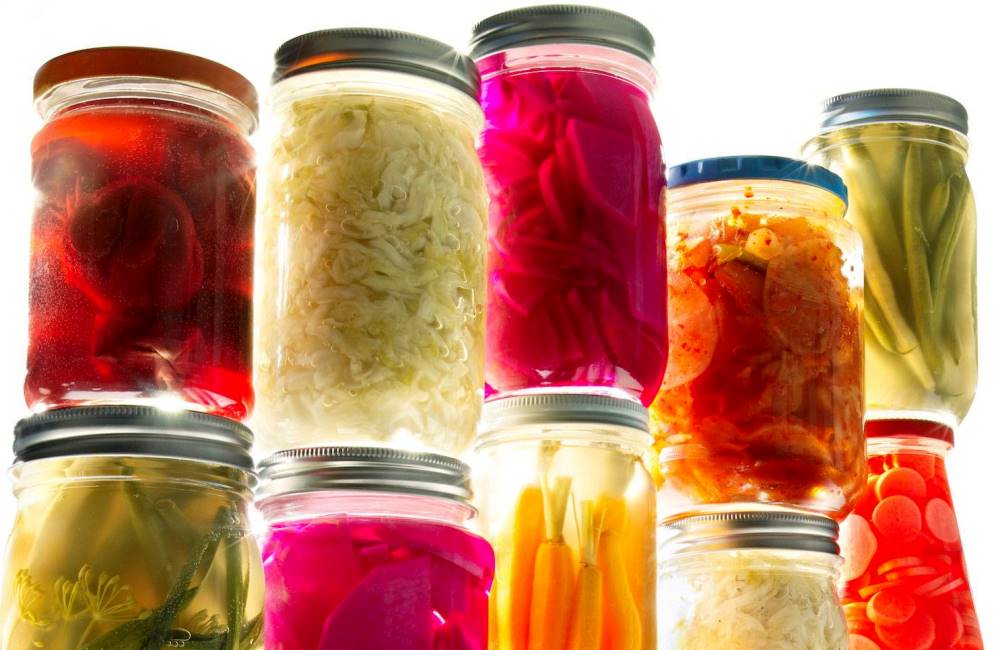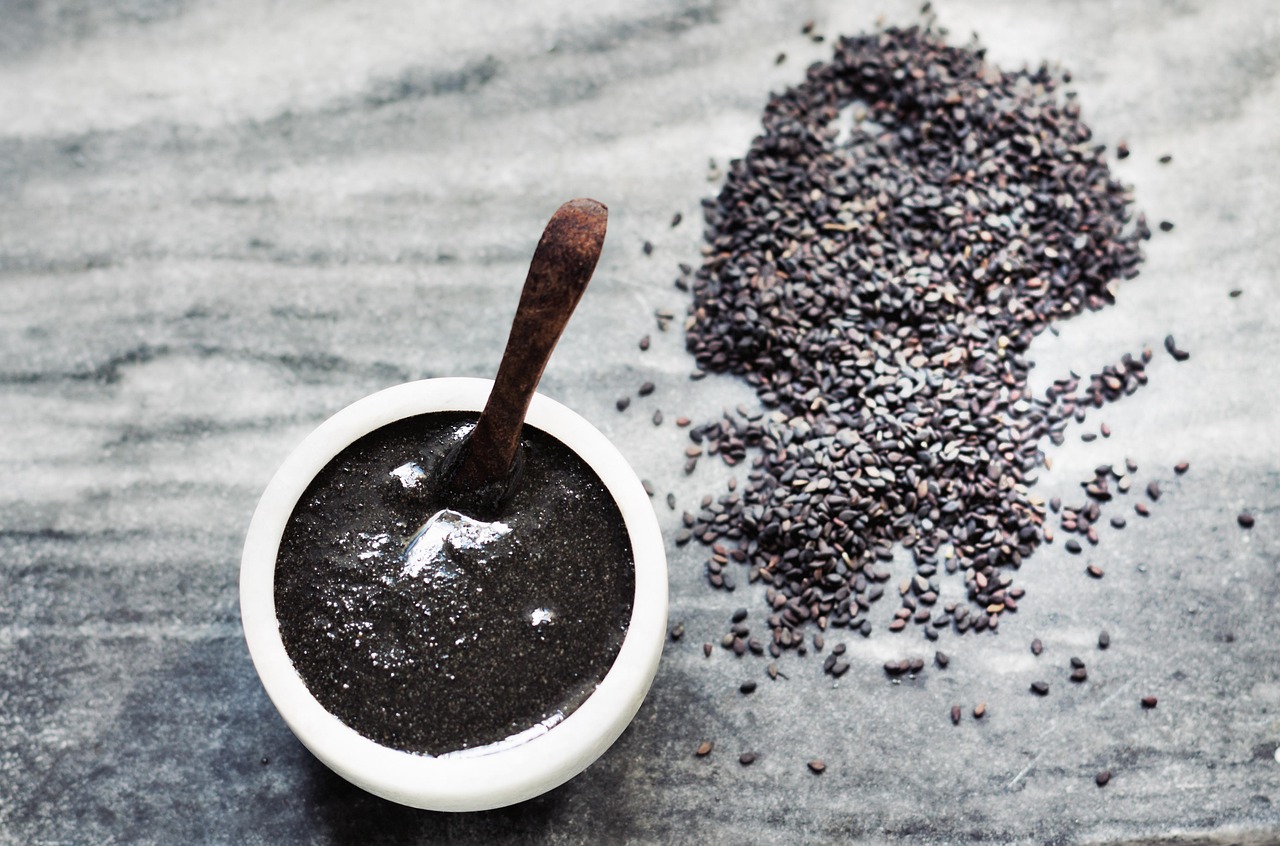Fermentation is quite an age-old practice that has caught up considerably in recent times. If you are not able to recall what your granny fermented then let me tell you something. The pickles prepared by your granny and loved by you are actually a fermented food. Yeah, so you need not ferment something especially today. You can just add some pickles to your diet to include fermented food.
I remember my mother-in-law forcing me to have some pickle, especially the mango ones in summer. She told me that they are good for the gut. But, I did not believe her. This is because my mother has always kept me away from pickles, saying they are not good for health, especially for my oily skin. However, now I have concluded that both of my mothers are right in their own way. Pickle is actually good food as it is fermented. However, it can also be a bad one if it is too oily. Henceforth, I shall include some pickle in my platter but the less oily ones. Also, if you are buying pickles off the shelf at a supermarket, make sure that the vegetables are fermented. If you are not sure, prepare one at home or ask your granny to do it.
What Actually is Fermentation?
You might be wondering what is fermentation all about. For the uninitiated, fermentation is a process wherein microorganisms like yeast, fungi, or bacteria help convert the organic compounds present in the food into acids or even alcohol. Fermentation converts sugar and starch present in the food and doubles up its benefit. For instance, yeast, curd, vinegar, pickle, etc. are fermented foods.
The process of fermentation is categorized into two viz. lactic acid one and another alcoholic one. During the fermentation using alcohol, pyruvate breaks down and takes the form of carbon dioxide as well as ethanol. It is basically used to prepare wines, bread, and beer. As opposed to this, lactic acid fermentation is a process wherein glucose and carbon sugars get converted into energy as well as metabolic lactate. The most common example of lactic acid fermentation is yogurt.
How Does Fermentation Help?
Fermentation is done for several reasons. Some of them are –
Preservation – Fermentation helps in preserving the food and extending its shelf life. Pickles are a classic example. Earlier, when there was no refrigerator, seasonal vegetables were preserved in the form of pickles and relished all year long. This is because the fermentation process compels the organisms present in the food to release acetic acid, lactic acid as well as alcohol. These are bio-preservatives helping retain the nutrients while preventing decay.
Aids Cooking – Some foods take a lot of time to cook. This might be because they are hard or tough to digest. Certain foods are such that they cannot be eaten in raw form. When foods of these categories are fermented, it is easy to use them. Further, it even helps in reducing the cooking time as well as the wastage of energy.
Enhances Taste – Fermented foods are better in taste most of the time. The process of fermentation brings out varied flavors in otherwise bland foods. Take, for instance, sourdough.
Releases Carbon Dioxide – the process of fermentation is used to produce carbon dioxide in food, at times. Take, for example, yeast. The fermentation of yeast gives way to CO2, which is an alcohol. CO2 raises the bread by getting trapped inside the dough and converting into air bubbles. This process is also used for carbonated drinks. When you open a drink, the fizz that rises in the form of air bubbles is nothing but the carbon dioxide.
What Are the Benefits of Eating Fermented Foods?
Yes, they are indeed good for health. However, you need to know how fermented foods are going to help you and your health in the long-term.
1. Good for the Gut
The process of fermentation produces probiotic bacteria. So, when you consume fermented foods, they automatically enter your system and improve your health, especially your gut and intestine. It has been proved that eating probiotic food is good for the digestive system as well as the immune system. The presence of lactobacilli in fermented foods prevents shigella, e.coli, and salmonella to ruin your health.
2. Pre-Digested Food
During the process of fermentation, some types of sugars and starches present in the food break down. Further, the good microbes also pre-digest the food. This makes it easy to digest fermented products. Also, the presence of lactic acid and enzymes in such food aids the digestion of protein and other nutrients. The simple example of this is yogurt or even cheese, which are fermented foods. Some people are not able to digest milk because of lactose intolerance. However, such people can easily digest yogurt and cheese. This is because while fermenting yogurt and cheese, the lactose present in milk breaks down to galactose and glucose, which can be digested easily.
3. Boost in Nutrients
Fermentation is well-known to increase the nutrients in the foods. With this, our system gets the benefit of added vitamins and minerals. While consuming fermented foods, good bacteria also help in producing B vitamins like riboflavin, biotin, thiamin, niacin, and folic acid. It even helps in synthesizing vitamin K. Further, there is also a boost in protein and fat in the food due to fermentation. Probiotic foods are also high in butyric acid, short-chain fatty acids, free amino acids as well as lactic acids.
4. Build Your Immunity
If you are looking for foods that can boost your immunity, then make sure to include fermented foods in your diet. This is because a prominent part of the immunity system operates from the gut, meaning the head office of the immune system is in the gut. So, when you consume probiotic foods, the good bacteria prevent ailments and strengthen up the system. For people who suffer from gut inflammation or are on antibiotics, fermented foods are quite helpful as they prevent the growth of bad microbes in the gut.
5. Removes Anti-Nutrients
This is quite important. Nowadays, many foods contain synthetic compounds that prevent nutrients from getting absorbed by the body. Such compounds are known as anti-nutrients and are like terrorists for your body. However, fermentation helps eliminate such terrorists and supports your health. One of such anti-nutrients is phytic acid. Present in legumes and some seeds, it is known to bind iron and zinc preventing their absorption by the body. And hence, people prefer consuming fermented legumes to get the benefit of such minerals. Take, for instance, tempeh.
6. Enhances Mood
If you are feeling down and depressed, then get some fermented food to munch on. It is said to boost your mood and behavior substantially. If you are wondering about the connection, then the connection is the one between your gut and the mind. When your gut feels good, the neurons present in it indicate your brain to feel good in turn. Fermented foods even help boost the functioning of the mind.
Things to Consider While Buying Fermented Foods
If you are a health-conscious person like me, you would like to know what all points to remember while purchasing fermented foods at a supermarket.
1. Say No to Added Sugar
If you want to invest in healthy probiotic food, make sure that there are no added sugars in it. For this, you need to read the label carefully. Fermented foods are slightly sweet due to the presence of natural sugars. Hence, the addition of sugar is a completed no-no. TO KNOW MORE ON HOW TO READ THE LABELS, READ THE POST
2. Say Yes to Organic
Organically done fermentation is quite good for your health. This is because organic products do not have any chemicals and pesticides to damage your health. Plus, such foods are high in nutrients.
3. Say No to Alcohol
While reading labels on fermented foods, you need to make sure that the alcohol is not added in generous quantities. Alcohol being a liver toxin increases the toxins present in your system. However, fermented foods might have alcohol in a smaller amount due to the process.
4. Say Yes with Fat
When you have fat-laden foods, make sure that you have fermented food by your side. This is because fermented and probiotic products offset the protein and fat. The problem with protein-rich and fat-laden products is that they prevent the production of lactobacillus, the good bacteria, in your gut. So, when you consume fermented foods, your system gets a set of good bacteria.
5. Say No to Pasteurization
The process of sterilization, as well as pasteurization, tend to kill the good bacteria as well as the enzymes, which help in boosting your digestive system. Hence, if you are consuming fermented foods to aid your digestion, you can avoid pasteurization.
Also Read: 10 Surprising Benefits of Isabgol
To Conclude
Nowadays, many people are on antibiotics and several medicines to improve their health. Instead of resorting to corrective measures, it is time to adopt preventive ones. Most of the ailments rise from the gut. Hence, it becomes all the more important to boost the health of your gut. This can be done by taking care of the intestinal gut flora and eating probiotic foods. Fermentation helps increase the good bacteria and so, it is very good for your gut and overall health. Take care of your gut and the entire system takes care of itself.








Leave a Reply